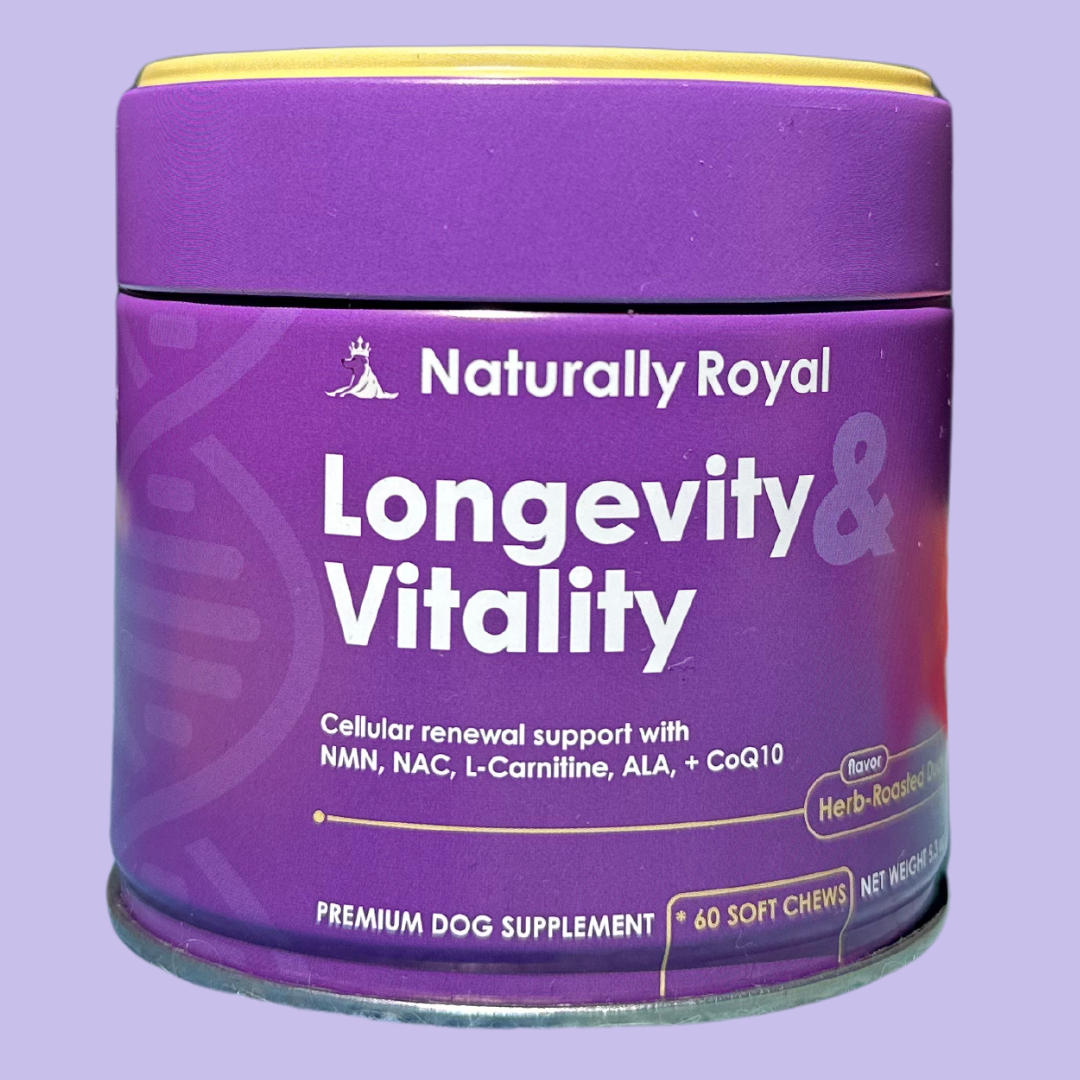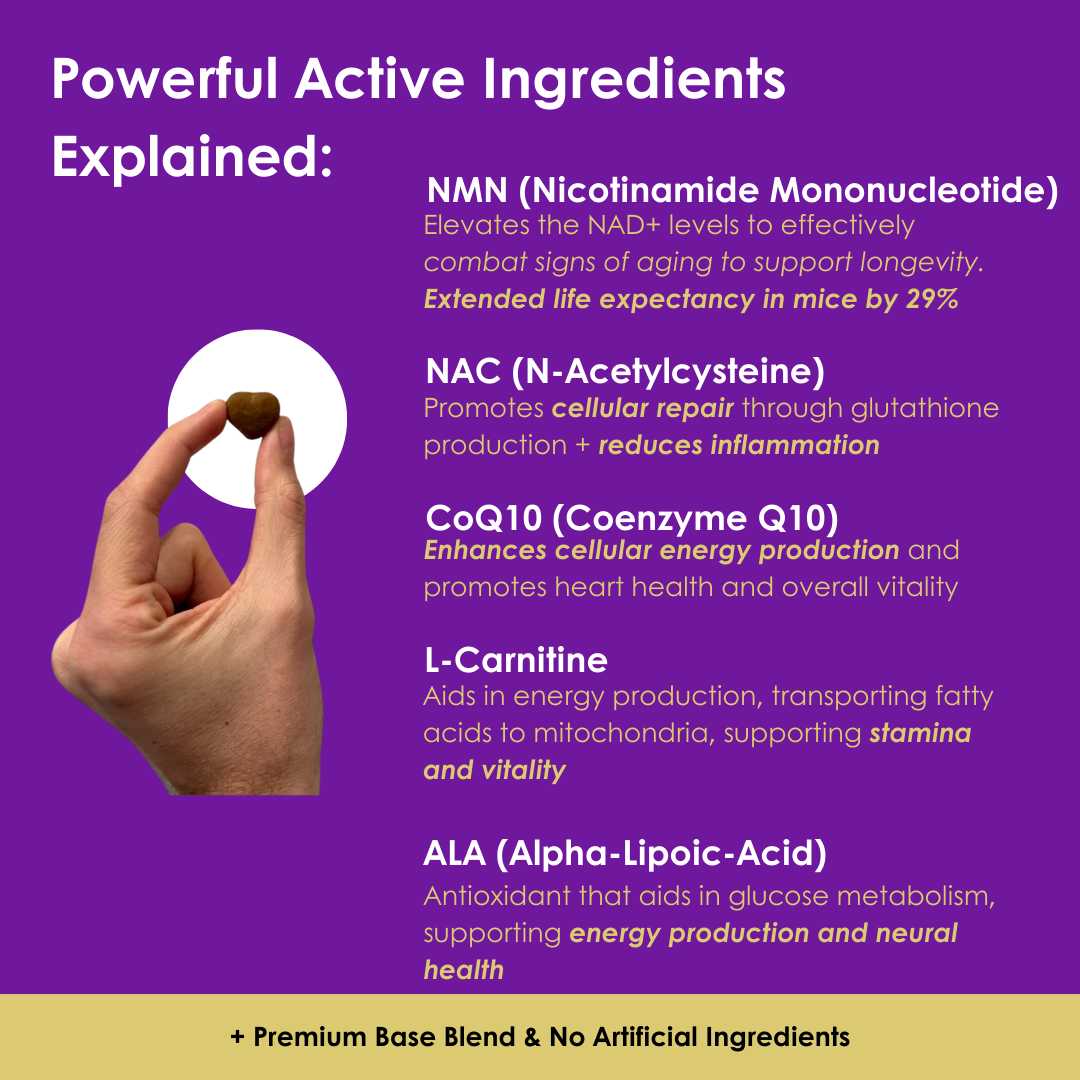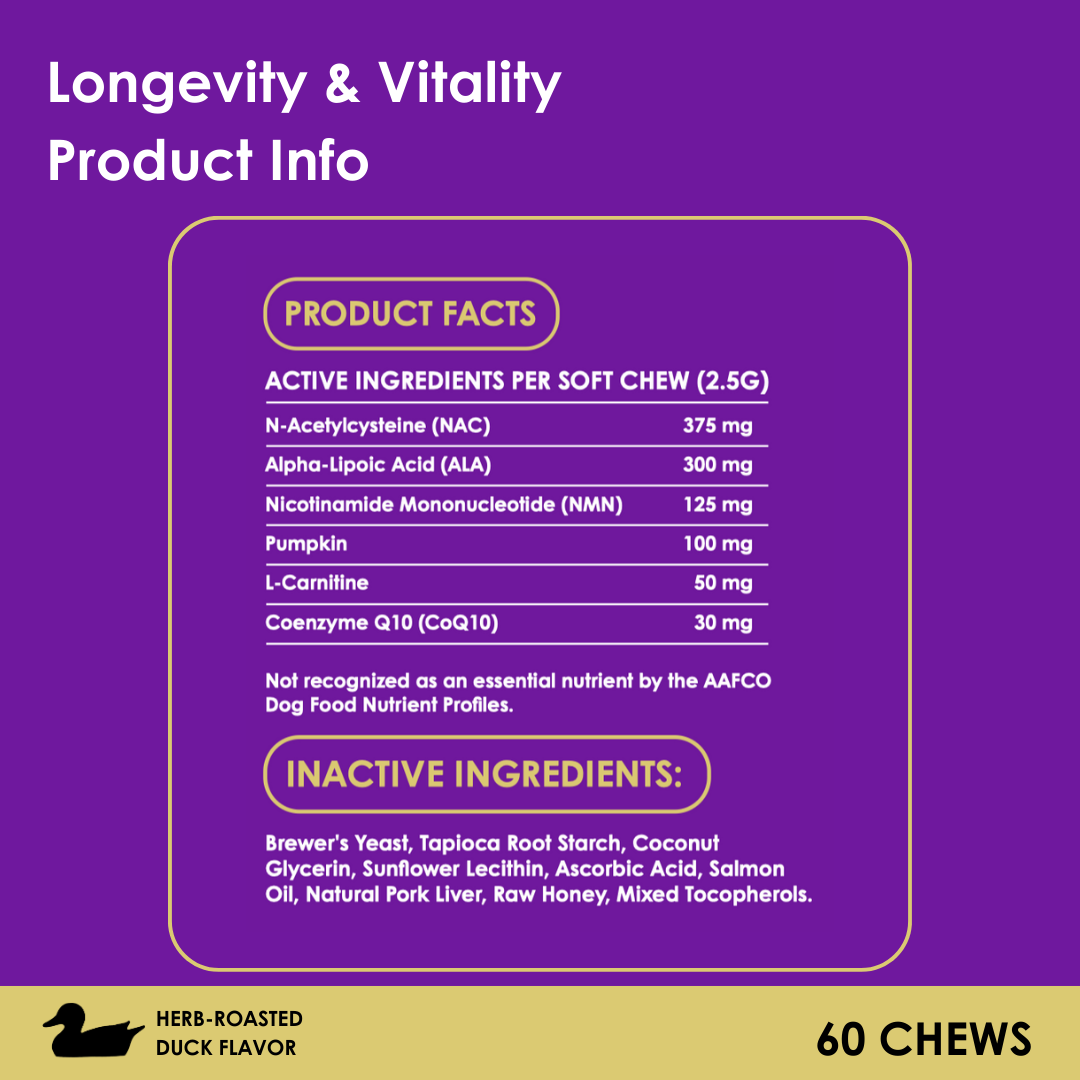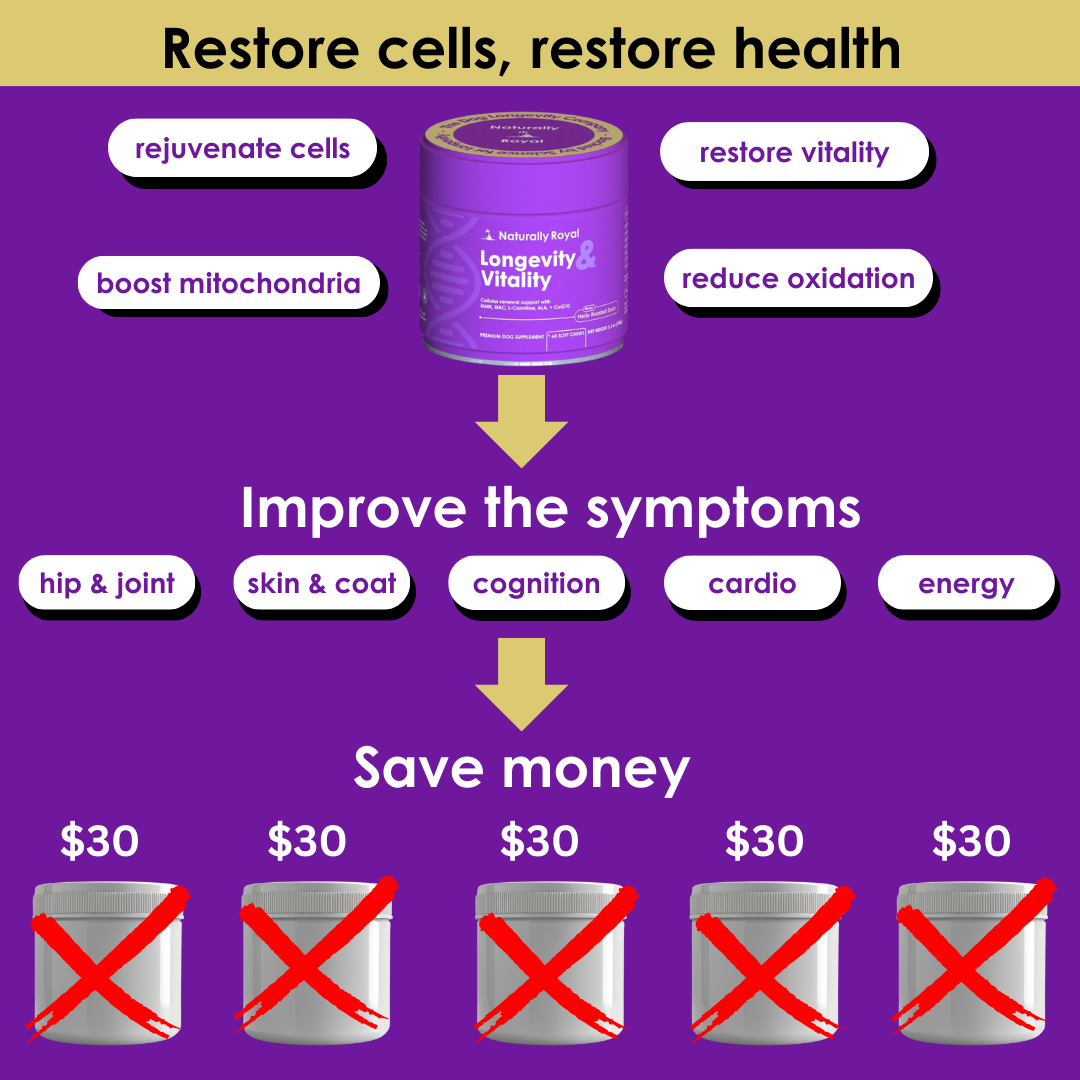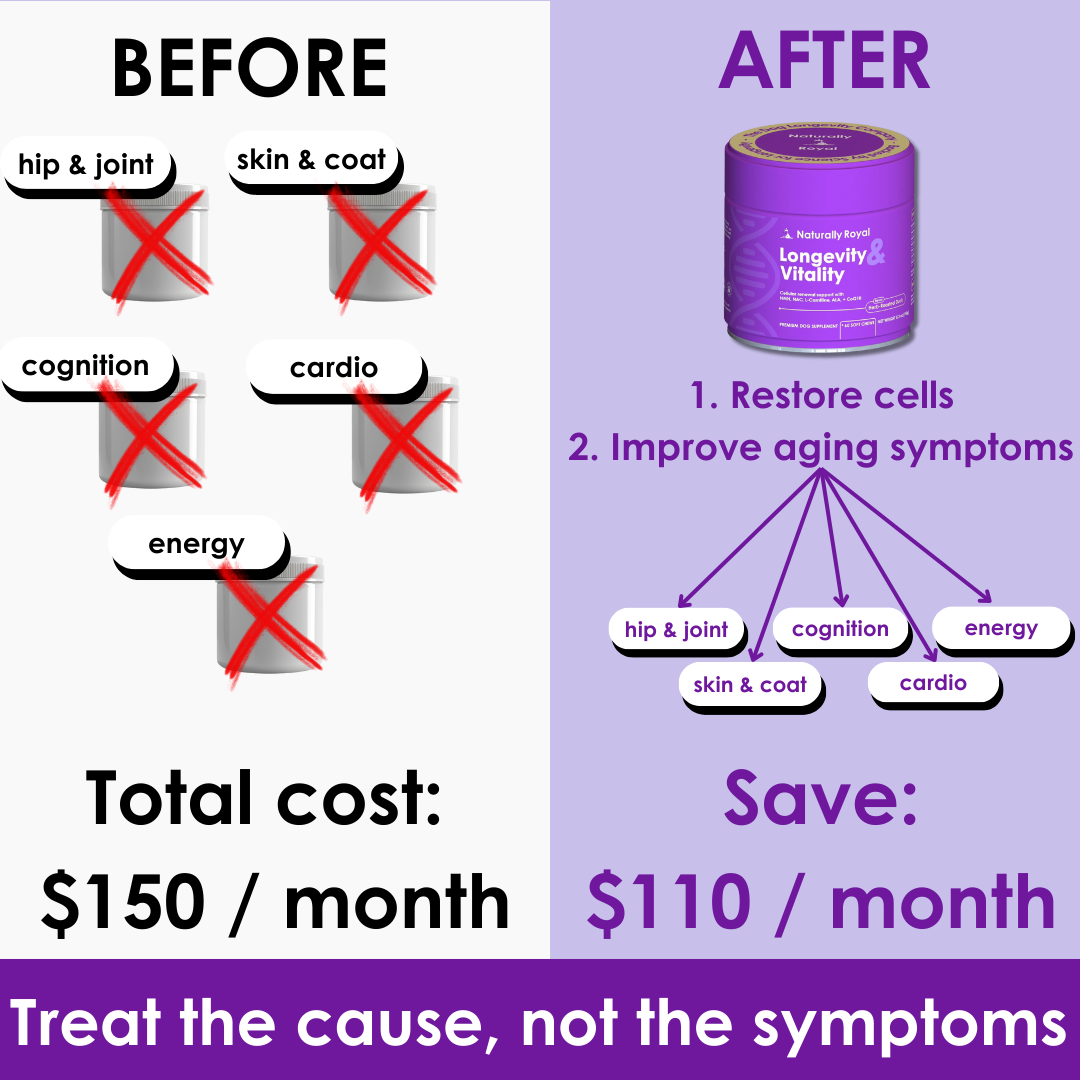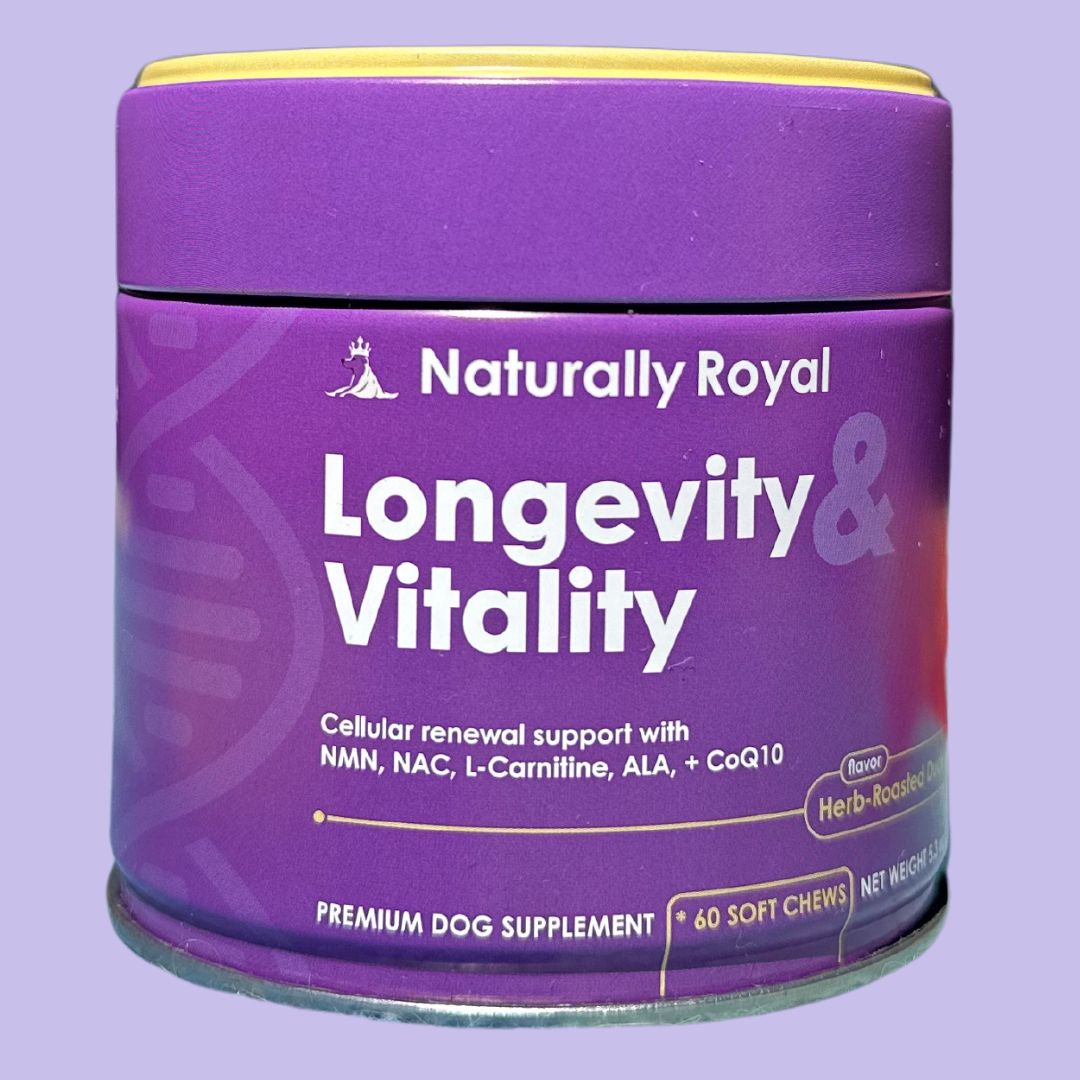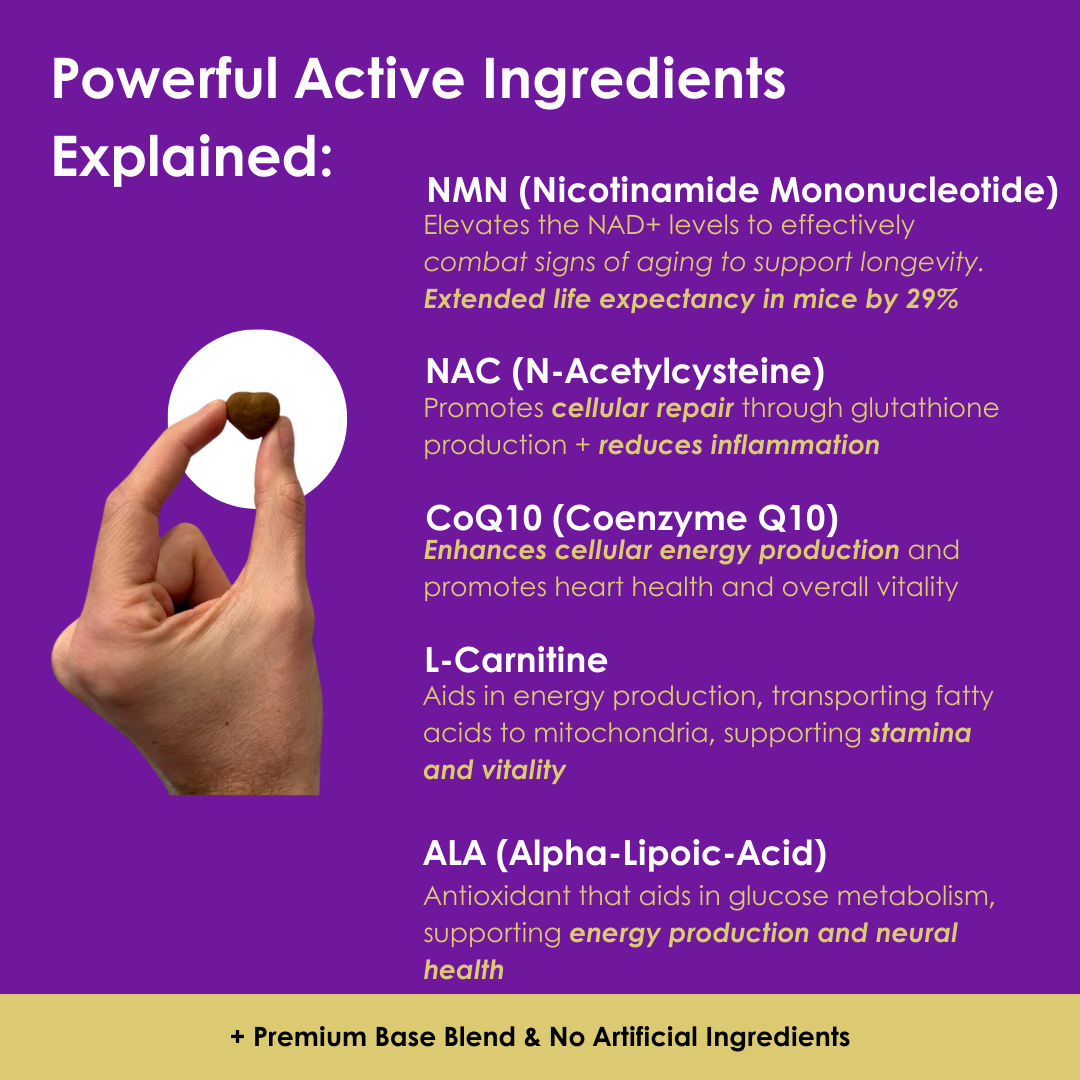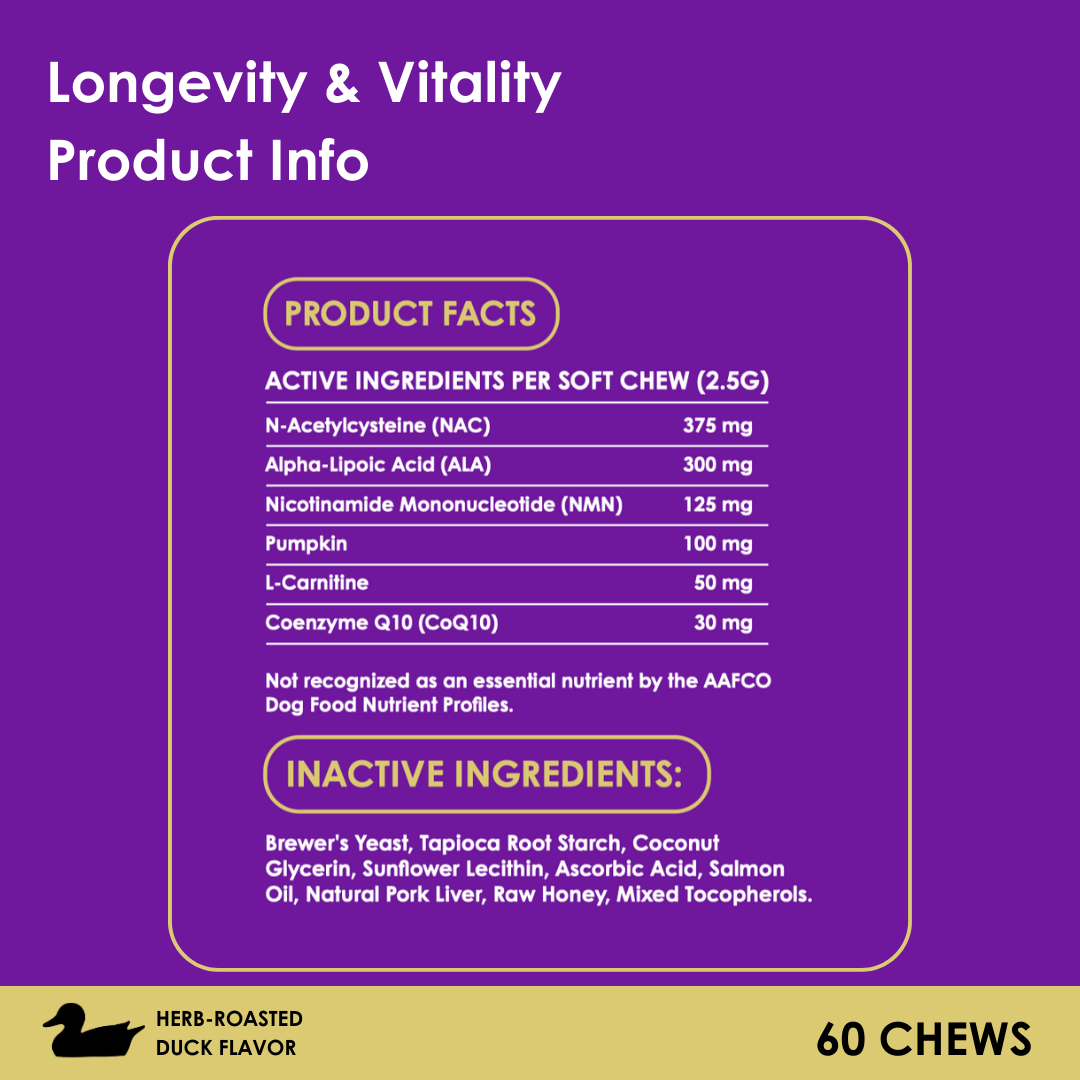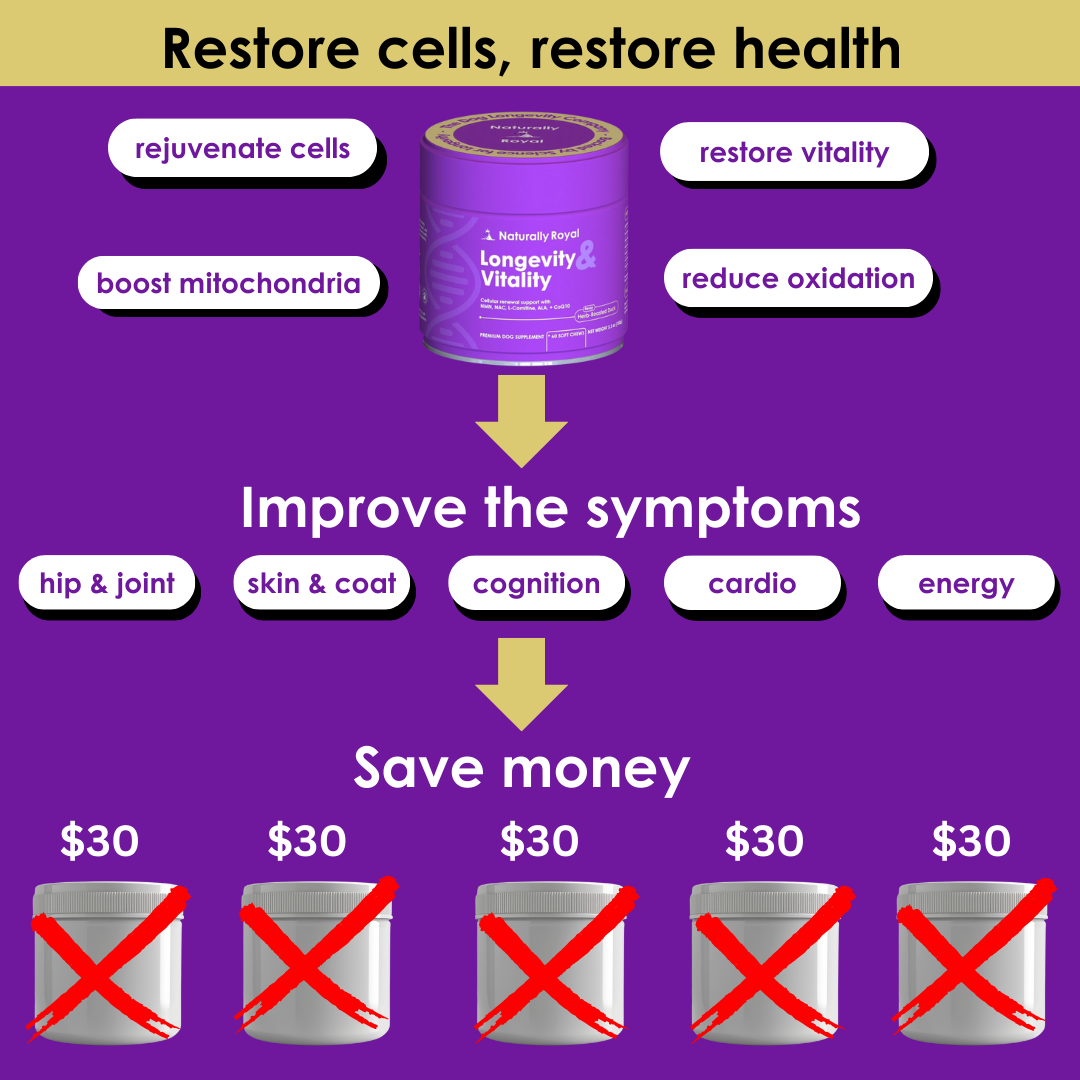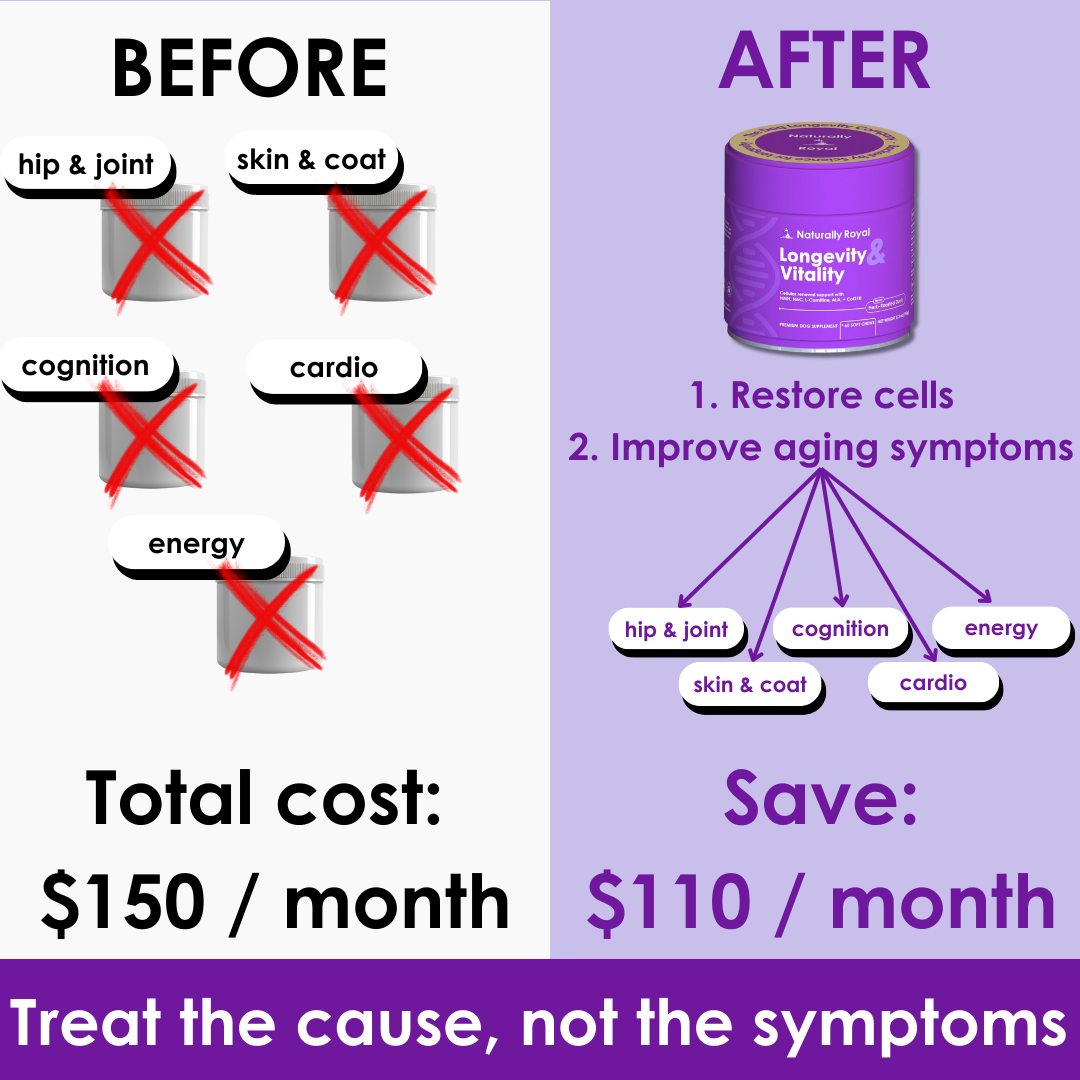Cancer Vaccine Finishes Clinical Trial
The fight against canine cancer has taken a significant step forward with the completion of the Vaccine Against Canine Cancer Study (VACCS). Conducted by Calviri, this 5-year clinical trial aimed to develop a preventive cancer vaccine for dogs. With promising results now emerging, this breakthrough has the potential to enhance the longevity and quality of life for dogs by preventing cancer before it starts. Let’s explore the details of this study and its implications for canine health and longevity:
The Study and Its Goals:
Calviri's cancer vaccine trial involved 804 dogs and spanned over five years. The vaccine was designed based on unique protein fragments, known as neoantigens, that arise from errors during tumor RNA processing. These neoantigens are present across multiple cancer types, allowing for a broad-spectrum approach to cancer prevention.
Key Findings:
-
Positive Safety and Efficacy Results:
- The trial revealed that the cancer vaccine could substantially reduce cancer incidence in dogs. Although the primary efficacy data is still under analysis, preliminary results indicate that the vaccine is safe and effective.
- Notably, the vaccine also appeared to reduce deaths from non-tumor-related causes such as heart disease, arthritis, metabolic diseases, and dementia.
-
Owner Participation and Impact:
- The trial was conducted at three clinical sites: Colorado State University, the University of California, Davis, and the University of Wisconsin–Madison.
- The success of the trial was significantly attributed to the dedication and participation of dog owners, highlighting the community's commitment to advancing canine health.
Impact on Longevity:
-
Cancer Prevention:
- By preventing the onset of cancer, the vaccine can significantly extend the lifespan of dogs. Early prevention reduces the need for invasive treatments and the associated health complications.
- The reduction in cancer incidence means dogs can lead healthier, longer lives free from the debilitating effects of cancer.
-
Overall Health Improvement:
- The vaccine's potential to decrease deaths from other chronic conditions indicates a broader impact on canine health. Improved overall health contributes to enhanced quality of life and longevity.
Future Prospects:
- Human Medicine: There is hope that the success of this vaccine in dogs could translate to cancer prevention in humans, paving the way for significant advancements in human oncology.
- Next Steps: Calviri is already working on an improved version of the vaccine for approval and conditional sales, with the aim to make this preventive measure widely available.
Conclusion:
The completion of Calviri's canine cancer vaccine trial marks a significant milestone in veterinary medicine. The positive results from this study offer hope for a future where cancer can be prevented in dogs, greatly enhancing their health and longevity. As research progresses, this breakthrough has the potential to transform cancer prevention strategies for both animals and humans, leading to a healthier future for all.


